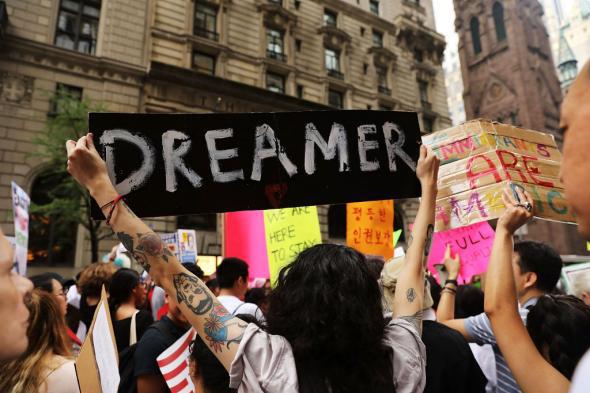The Trump administration is likely to end an Obama-era program protecting undocumented individuals who were brought to the U.S. as children from deportation, NBC reports:
President Donald Trump appears likely to pull the plug on DACA, the Obama-era program allowing young people who came to the U.S. illegally as children to remain here, several government officials said Friday.
Administration officials said the Department of Homeland Security sent a recommendation to the White House earlier this week on what to do, and Attorney General Jeff Sessions discussed the program with senior officials Thursday at the White House. Sessions has been a consistent opponent of the program, formally known as Deferred Action for Childhood Arrivals.
Nearly 800,000 U.S. residents currently benefit from DACA (Deferred Action for Childhood Arrivals), which allows individuals who were brought to the U.S. by their parents before 2007 to apply for protection for deportation—and a legal work permit—if they arrived in the country before turning 16. (DACA beneficiaries are sometimes called DREAMers because of the DREAM Act, which did not pass Congress but would have allowed them to eventually become citizens.)
The move would seem to be a reversal of Trump’s previous suggestion that he would “deal with DACA with heart” and that its beneficiaries “shouldn’t be very worried.” A recent Morning Consult poll found that even Republicans largely oppose the deportation of DACA-eligible individuals.
The perceived existential threat of immigration is, however, a consistent concern of the white supremacists who have supported and served in the Trump administration. In 2015, Jeff Sessions praised the 1924 Johnson-Reed Act—which imposed strict limits on the entry of groups like Italians, Asians, and Jews who were perceived to be racially inferior—during a radio interview with Steve Bannon. “It was good for America,” said Sessions.
